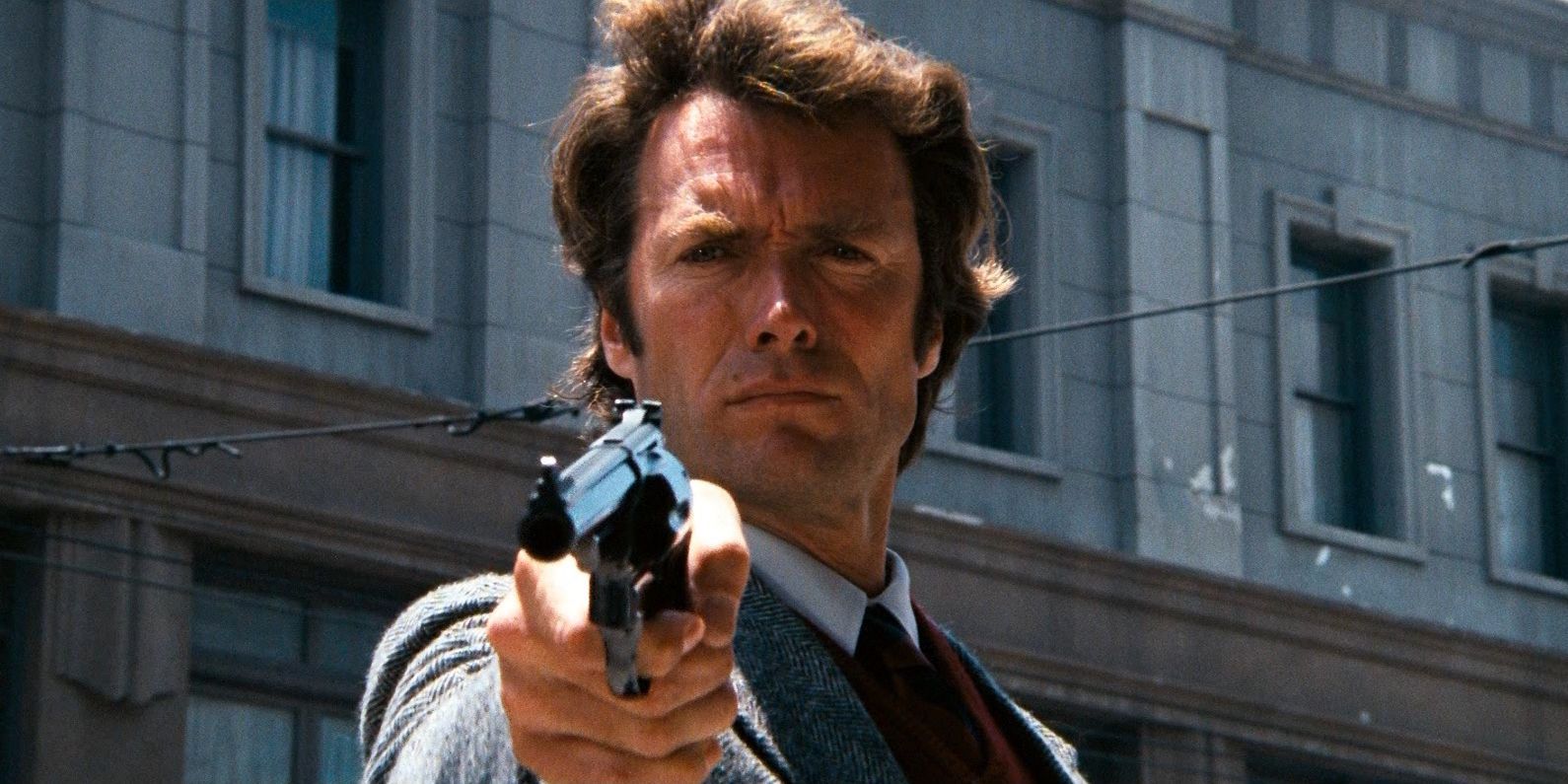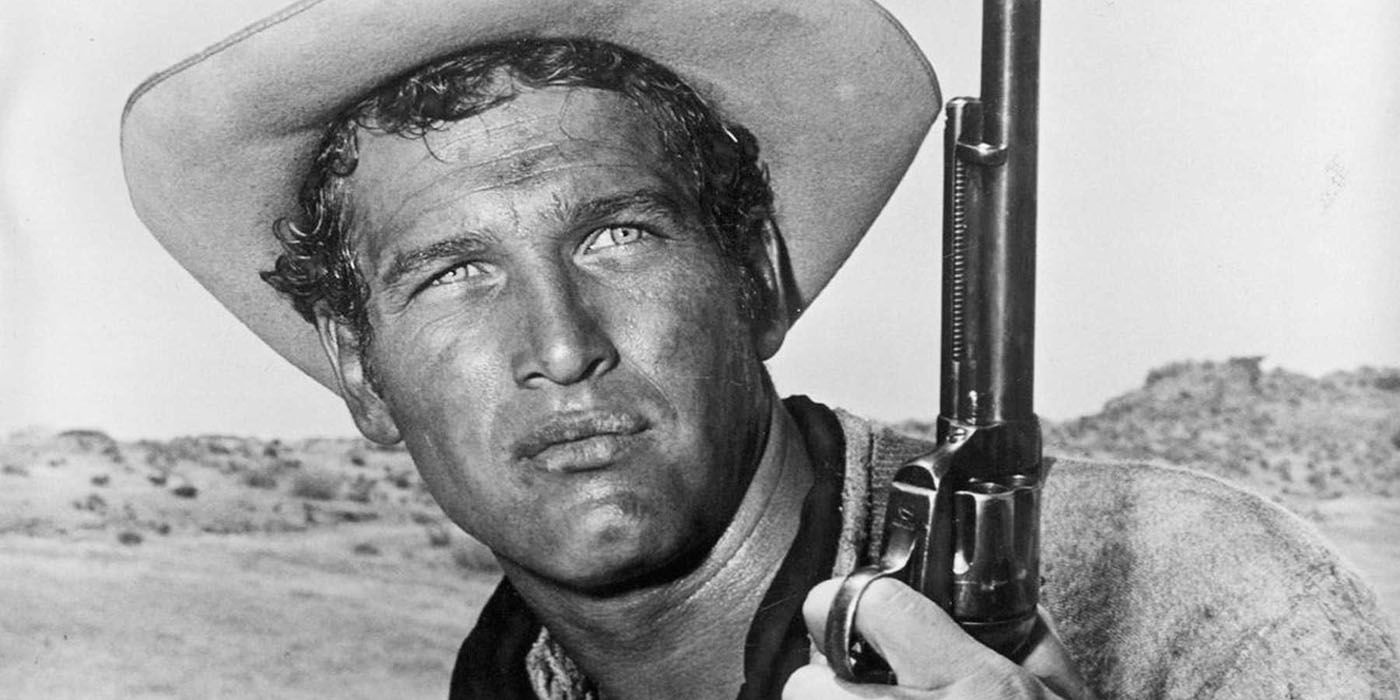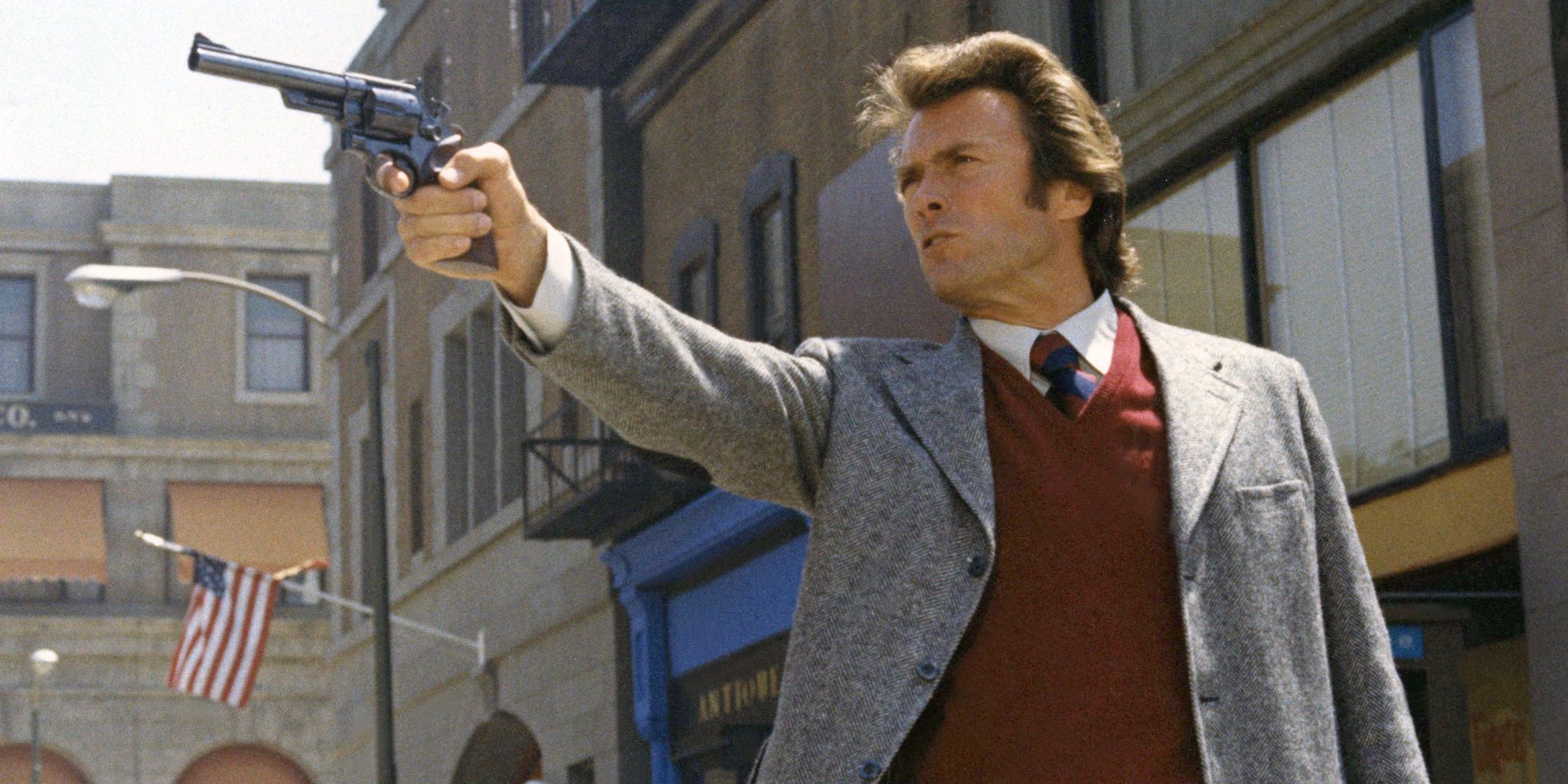Clint Eastwood
The 22 Best Clint Eastwood Movies That Aren’t Westerns
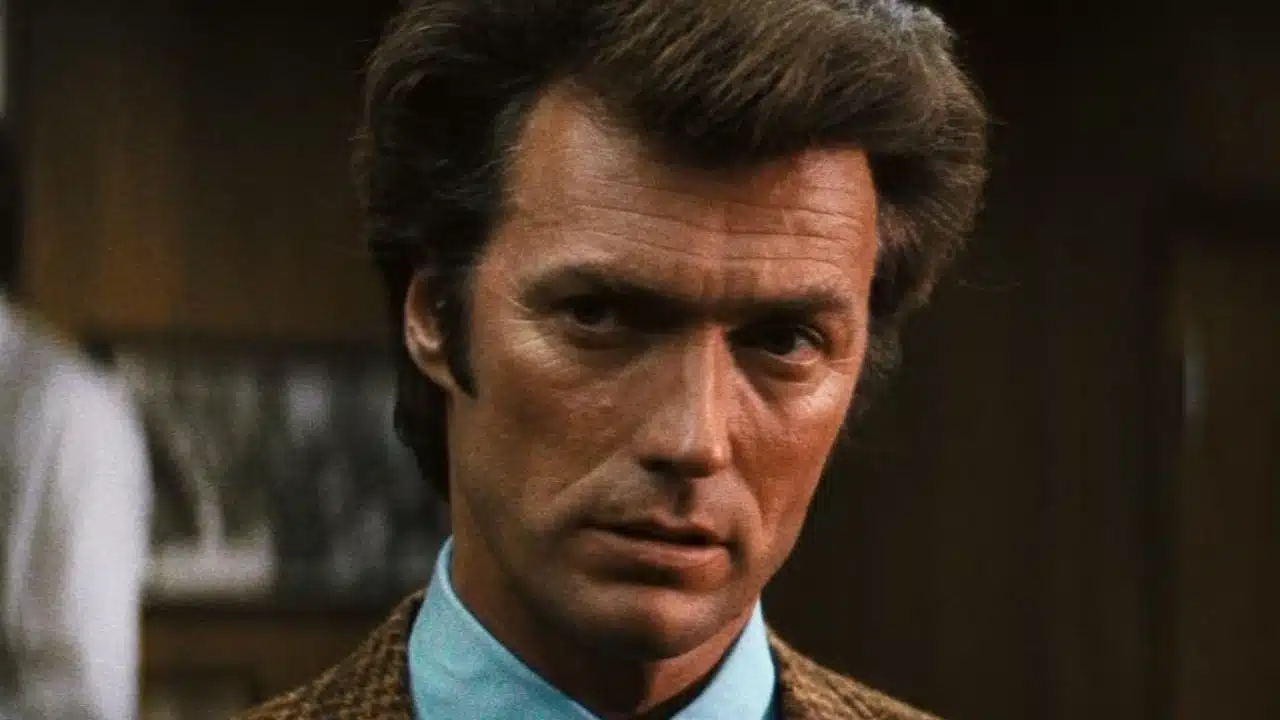
A large chunk of his films are Westerns – it’s undoubtedly the genre most people think of first when his name gets spoken – but he’s also acted in some great movies in different genres.
In this piece, we’ll take you through the 22 best movies Clint Eastwood has appeared in that aren’t in the Western genre.
1. The Eiger Sanction (1975, directed by Clint Eastwood)

The Eiger Sanction is an action movie based on Trevanian’s 1972 novel. It’s about an art history professor, mountain climber, and former assassin who a secret government agency once employed, as he gets blackmailed into returning to his previous profession for one final mission that involves climbing the Eiger.
Eastwood plays the lead role of C-2 Agent Dr. Jonathan Hemlock and does so adeptly, if not iconically. The movie is suspenseful and dramatic, and the climbing scenes are fantastic. The plot’s all over the place, but it looks good.
2. Magnum Force (1973, directed by Ted Post)
 Image Credit: Warner Bros.
Image Credit: Warner Bros.
Magnum Force is a neo-noir vigilante action thriller and the second movie after 1971’s Dirty Harry to feature Clint Eastwood as the nonconformist cop Harry Callahan. In this one, Callahan looks into a conspiracy of vigilante cops who don’t mind bending the rules to kill San Francisco’s criminals.
It’s an exciting movie with an assured performance from Eastwood, but its conflicting moral themes bring it down (Callahan’s “anti-vigilantism” really isn’t believable). Nevertheless, Magnum Force has plenty of fast-paced action and some excellent stunts.
3. The Mule (2018, directed by Clint Eastwood)
 Image Credit: Warner Bros.
Image Credit: Warner Bros.
The Mule is a crime drama based on Sam Dolnick’s 2014 article in The New York Times. It tells the story of Leo Sharp, a World War II veteran who became a narcotics courier for the infamous Mexican Sinaloa Cartel while he was in his 80s.
The slow pace of The Mule means it isn’t an exciting watch, but it’s undoubtedly a charming one. Eastwood’s whimsical snarling is endearing, and his overall performance, while subdued compared to normal, is very good.
4. American Sniper (2014, directed by Clint Eastwood)
 Image Credit: Warner Bros. Pictures
Image Credit: Warner Bros. Pictures
American Sniper is a biographical war drama loosely based on Chris Kyle’s 2012 memoir. It’s about Kyle’s life, as he became the deadliest marksman in U.S. military history (he had 255 kills from four tours in the Iraq War, 160 of which the Department of Defense has officially confirmed).
Bradley Cooper is brilliant as Kyle, giving a gripping performance that makes the film worth watching. It’s a pretty sad movie, but its vivid accounts of events warrant significant praise. Eastwood has a mere uncredited cameo as a church-goer, but he appeared in it, so it counts.
5. The Gauntlet (1977, directed by Clint Eastwood)
 Image Credit: Warner Bros.
Image Credit: Warner Bros.
The Gauntlet is an action thriller about a down-and-out police officer who falls in love with a prostitute after being assigned to escort her from Las Vegas to Phoenix so she can testify against the mob.
It’s a fast-paced, energetic, funny movie with near-relentless action. Eastwood is fantastic as the cop who falls for the lady of the night, giving a typically gruff performance. The plot is ridiculous, and the dialogue is straight out of a comic book, but The Gauntlet is an easy, fun watch.
6. Space Cowboys (2000, directed by Clint Eastwood)
 Image Credit: Image Credit: Warner Bros. Pictures
Image Credit: Image Credit: Warner Bros. Pictures
Space Cowboys is an adventure drama about four older “ex-test pilots” – played by Eastwood, Tommy Lee Jones, Donald Sutherland, and James Garner – who are sent into space to repair an old Soviet satellite.
It’s a clichéd story, but its veteran stars make Space Cowboys a most enjoyable viewing experience. The acting and the tense chemistry between Eastwood and Jones are exceptional, and while it doesn’t take any risks, this movie does what it does well.
7. Kelly’s Heroes (1970, directed by Brian G. Hutton)
 Image Credit: Metro-Goldwyn-Mayer
Image Credit: Metro-Goldwyn-Mayer
Kelly’s Heroes is a World War II comedy-drama heist movie that follows a motley crew of American GIs going AWOL behind German lines to rob a French bank.
This film perfectly balances humor with the horrors of war. For the most part, it’s a fun heist caper with lively performances from Eastwood, Telly Savalas, and Donald Sutherland, but it’s also terrific when it gets serious. It’s top-quality satirical commentary.
8. A Perfect World (1993, directed by Clint Eastwood)
 Image Credit: Warner Bros.
Image Credit: Warner Bros.
A Perfect World is a crime drama about an escaped convict who takes a young boy hostage and goes on the run with the child while various law enforcement officers pursue him.
Kevin Costner stars as the convict, while Eastwood portrays a Texas Ranger in pursuit of him, and both men are fantastic. It’s an intelligent, gritty, haunting movie with much heart. The story could be more cohesive, but it’s highly watchable, thanks mainly to its cast.
9. Gran Torino (2008, directed by Clint Eastwood)
 Image Credit: Warner Bros. Entertainment Inc
Image Credit: Warner Bros. Entertainment Inc
Gran Torino is a drama movie about a recently widowed, angry Korean War veteran who befriends his young neighbor (and his family) after the boy gets pressured into trying to steal his prized 1972 Ford Torino for his initiation into a gang.
It’s a funny, touching, brilliantly acted movie with a 78-year-old action hero as its lead – and Eastwood pulls it off. The star has a knack for simultaneously being incredibly menacing and likable, and this film epitomizes that. Its multicultural inclusivity warrants praise, too.
10. White Hunter Black Heart (1990, directed by Clint Eastwood)
 Image Credit: Warner Bros.
Image Credit: Warner Bros.
White Hunter Black Heart is an adventure drama movie based on Peter Viertel’s 1953 novel. It’s a semi-fictional account of Viertel’s experiences while working on the 1951 film The African Queen. The main character, brash director John Wilson (Eastwood), is based on real-life director John Huston.
It’s a poignant and intelligent movie that brilliantly conveys the insecurity some artists endure in their careers. Eastwood is brilliant in this film, and the supporting cast is surprisingly great for a group of actors most people haven’t heard of.
11. Tightrope (1984, directed by Richard Tuggle)
 Image Credit: Warner Bros.
Image Credit: Warner Bros.
Tightrope is a neo-noir psychological mystery slasher crime thriller – and isn’t that a mouthful? This movie follows a New Orleans single dad and cop who goes after a murderer but becomes the hunted man when he gets too close to the criminal.
It received praise for portraying a gruff, hard-nosed cop developing as a character and coming to respect a woman. Tightrope is a gripping movie in which Eastwood gives a complex, layered, and impactful performance. The chemistry between him and Geneviève Bujold is palpable.
12. Play Misty for Me (1971, directed by Clint Eastwood)
 Image Credit: Universal Pictures.
Image Credit: Universal Pictures.
Play Misty for Me is a psychological thriller about a radio disc jockey who gets relentlessly stalked by an obsessed female fan. This movie was Eastwood’s directorial debut, and he plays the lead role of the DJ.
This excellent movie has some genuine scares, and Eastwood and Jessica Walter – the latter in particular – are both fantastic. It’s suspenseful, calculating, and thoroughly entertaining, and it has audiences in the palm of their hands and on the edge of their seats.
13. Thunderbolt and Lightfoot (1974, directed by Michael Cimino)
 Image Credit: United Artists
Image Credit: United Artists
Thunderbolt and Lightfoot is a crime comedy about a bank robber who gets his old gang back together to organize a risky new heist with the assistance of a cocky and disrespectful young acquaintance.
It’s as funny and dramatic as you could hope a crime comedy could be. Eastwood and Jeff Bridges make a great buddy duo and have excellent chemistry. It’s entertaining throughout, if not a little vulgar at times. The tone changes often, but it works in this film.
14. Where Eagles Dare (1968, directed by Brian G. Hutton)
 Image Credit: Warner Bros.
Image Credit: Warner Bros.
Where Eagles Dare is a World War II movie chronicling a joint British-American Special Operations team raiding a mountaintop fortress in the German Alps to rescue a U.S. Army brigadier general.
This movie is a bona fide classic with thrills galore. Its excellent cast, led by Richard Burton, performs brilliantly. The plot is a little convoluted, but most viewers will get the gist of it. The third act, in particular, is completely riveting.
15. Dirty Harry (1971, directed by Don Siegel)
 Image Credit: Warner Bros.
Image Credit: Warner Bros.
Dirty Harry is Eastwood’s most iconic movie. It’s a neo-noir action thriller that follows San Francisco Police Department Inspector “Dirty” Harry Callahan as he seeks out a vicious and psychopathic killer.
As controversial as Dirty Harry was, it’s a brilliant film. Eastwood is formidable in the eponymous role, and Andy Robinson is frighteningly convincing as the Scorpio Killer and the thrills are neverending. It’s stylish, energetic, and action-packed.
16. The Beguiled (1971, directed by Don Siegel)
 Image Credit: Universal Pictures
Image Credit: Universal Pictures
The Beguiled is a Southern Gothic movie based on Thomas P. Cullinan’s 1966 novel, originally titled A Painted Devil. It’s about a Union soldier who, while recovering in a Confederate girls’ boarding school, cons his way into the hearts of several lonely women, causing them to turn on each other and, ultimately, on him.
Eastwood’s character, Corporal John “McBee” McBurney, is despicable in this film, but the actor is brilliant. It’s one of the strangest movies associated with the veteran star – Quentin Tarantino says it’s almost an art film – and it’s suspenseful, stylish, darkly funny, and engaging.
17. Million Dollar Baby (2004, directed by Clint Eastwood)
 Image Credit: Warner Bros. Pictures
Image Credit: Warner Bros. Pictures
Million Dollar Baby is a sports drama based on F.X. Toole’s (the pen name of fight manager and cutman Jerry Boyd) stories from his 2000 collection Rope Burns: Stories from the Corner. It’s about an amateur female boxer whom a cantankerous boxing trainer helps to achieve her dream of becoming a professional.
Seven Academy Award nominations and four wins say it all. Million Dollar Baby won Best Picture, Best Director (for Eastwood), Best Actress (for Hilary Swank), and Best Supporting Actor (for Morgan Freeman). It’s a brilliant movie with excellent performances, direction, and a heartfelt, impactful story. The ending is very depressing, however.
18. The Bridges of Madison County (1995, directed by Clint Eastwood)
 Image Credit: Warner Bros.
Image Credit: Warner Bros.
The Bridges of Madison County is a romantic drama based on Robert James Waller’s 1992 bestselling novel. The movie chronicles a four-day love affair between a National Geographic photographer and an Italian war bride in Iowa in the mid-1960s.
Eastwood and Meryl Streep are superb in this movie, with the latter receiving an Academy Award nomination for Best Actress for her performance. It’s a sentimental, unrushed, and very easy-to-watch film that’s a lot more entertaining than its simple premise suggests it might be.
19. Tarantula! (1955, directed by Jack Arnold)
 Image Credit: Universal Pictures
Image Credit: Universal Pictures
Tarantula! is a sci-fi monster horror movie about a spider escaping from an isolated Arizona desert laboratory that experiments with giantism and wreaking havoc in the local area as it grows to enormous proportions.
We bet you were surprised to see this movie here! Eastwood appears uncredited in a minor role as a jet squadron leader, but it’s a movie he should be proud to be in. It’s fast-paced, has excellent special effects for its time, and some genuinely intriguing subplots are at play. Tarantula! is a classic of its genre.
20. Coogan’s Bluff (1968, directed by Don Siegel)
 Image Credit: Universal Pictures
Image Credit: Universal Pictures
Coogan’s Bluff is an action crime thriller about a veteran deputy sheriff from a rural county in Arizona who heads to New York City to escort a captured fugitive who is wanted for murder back for trial.
This movie influenced how action movies would play out for decades and shaped Eastwood’s cinematic persona in the future. It’s energetic, engaging, and quite funny at times, and Eastwood’s performance is easily the most underrated of his entire career.
21. In the Line of Fire (1993, directed by Wolfgang Petersen)
 Image Credit: Columbia Pictures
Image Credit: Columbia Pictures
In the Line of Fire is a political action thriller about a United States Secret Service agent who couldn’t save John F. Kennedy from assassination but is determined not to let a crafty assassin take out the current president.
Although it didn’t win any, In the Line of Fire received three Academy Award nominations, and rightly so. It’s a brilliant movie with awesomely charismatic performances from Eastwood and John Malkovich (who got a Best Supporting Actor nomination). It’s smooth, stylish, intelligent, and completely gripping.
22. Escape from Alcatraz (1979, directed by Don Siegel)
 Image Credit: Paramount Pictures
Image Credit: Paramount Pictures
Escape from Alcatraz is a prison action thriller based on J. Campbell Bruce’s 1963 non-fiction book, which dramatizes the 1962 prisoner escape from the infamous maximum security prison on San Francisco’s Alcatraz Island.
It’s Eastwood’s best non-Western movie, and he’s fabulous as Frank Morris, one of the inmates who escaped. The film is a masterful piece of storytelling and moviemaking, and it’s stylish, exhilarating, excellently acted, and makes terrific use of its claustrophobic setting.
You may like
Clint Eastwood
Mystic River: Why Clint Eastwood’s Best Movie Still Holds Up Today

A filmmaker of Clint Eastwood‘s caliber is going to have a filmography full of gems. Primarily known for his work in Westerns, biopics, and military dramas, every so often, Eastwood steps outside his comfort zone and delivers in a genre that would seem completely unexpected on paper. That happened in 2003 with Mystic River, a neo-noir murder mystery drama that seems a bit forgotten or overlooked, even though it was a financial success and earned six Academy Award nominations. It represents Eastwood at his very best, breathing vivid life into complex characters as he examines a plethora of themes that range from loyalty, friendship, revenge, and, ultimately, forgiveness.

Mystic River is based on the 2001 novel of the same name by Dennis Lehane, and it follows the lives of three childhood friends, Jimmy Markum (Sean Penn), Sean Devine (Kevin Bacon), and Dave Boyle (Tim Robbins), living in Charlestown, Boston in 1975. Dave is kidnapped by two men claiming to be police officers, and he’s sexually abused by them over a four-day period until he escapes. The traumatic event shapes the three friends, and they ultimately lead very different lives twenty-five years later.
Jimmy is an ex-con that now owns a convenience store in the neighborhood, Sean works for the Massachusetts State Police as a detective, and Dave is your everyday blue-collar worker that still lives with the trauma of being abducted and raped. Their lives are forced together once again through tragedy when Jimmy’s daughter Katie (Emmy Rossum) is found murdered, and friendship is tested when all signs point to Dave being the murderer.
Mystic River Is a Departure From Clint Eastwood’s Other Work
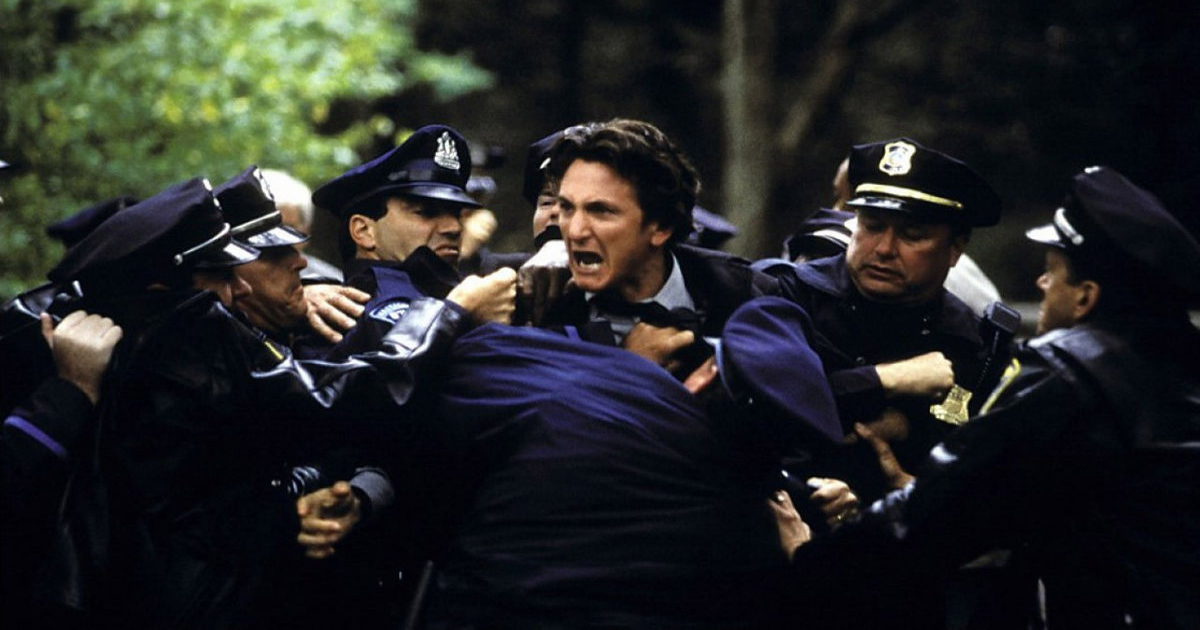
Eastwood tackles the material in Mystic River with a sure and confident hand. It also represents a unique departure from some of his other films. Much of the action takes place under the cover of darkness, and Eastwood is able to find beauty in that darkness. The filmmaker focuses on a character’s eyes or the gleam of a weapon, for instance, as darkness permeates most of the scene.
For the scenes that take place during the day, the filmmaker opts for tight close-ups that linger over the emotions of his impressive cast. There is something uncomfortably intimate about Mystic River, and that has much to do with the subject matter. None of this story is particularly easy to digest, and Eastwood adds to that discomfort with his choices to frame scenes in such a way that’s almost intrusive. The audience feels a growing sense of dread and tension as more of the story unfolds.
Using Lehane’s novel and Brian Helgeland’s screenplay as a blueprint, Eastwood profoundly explores generational trauma and how the sins of the past can leave a permanent mark on our present. Even though the abuse only happened to Dave, the effects of the event leave a mark on all three friends, with Dave being the primary victim and the others feeling a sense of survivor’s guilt for not being subjected to it themselves.
The ordeal forever changes their union because they’re never quite able to look at each other the same way again, as each friend deals with the trauma differently. Jimmy is stunned by the act of abuse but can’t give Dave the support he needs, which then bleeds into their present when Jimmy begins to suspect that Dave had something to do with his daughter’s murder. He doesn’t want to consider that his friend would do something like this because of the trauma he endured as a child, but as evidence mounts against him, Jimmy has to decide if friendship and loyalty overshadow his need for vigilante justice. The story is rich with so many complexities that make it some of Eastwood’s most compelling work as a filmmaker.
Eastwood also takes his time with the story and lets it unfold as it should. Mystic River is very nuanced, and he knows he’s dealing with heartbreaking subject matter that requires patience and respect. The story is grounded in so much reality that Eastwood seems keenly aware that a viewer might be an actual victim of this kind of abuse themselves, so he delicately approaches the topic and gives it the emotional weight it deserves.
He also shows the uncomfortable side of abuse where the victim, unfortunately, can be shamed because of the event. Dave becomes an outsider later in his life, even with his close friends, something that sadly comes along with this kind of trauma. Eastwood approaches all of this responsibly and provides a very balanced outlook to all the events transpiring on screen.
Mystic River has become known for its powerhouse performances, and Eastwood pulls the very best from his ensemble cast. While the scenes with the young actors are brief in the beginning, they set the tone of who these people will be twenty-five years later. Dave becomes the outcast because of the event; Jimmy lacks empathy and doesn’t trust authority, while Sean becomes the grounded one of the bunch and a police officer in an attempt to prevent a tragedy like this from ever happening again.
Clint Eastwood Pulls Powerhouse Performances From His Cast
Tim Robbins, Sean Penn, and Kevin Bacon do a great job conveying the unspoken tension between all three of these characters. There is a sense of loyalty, but so much has taken place over the years that it has forced them all to lead very different lives. As a group, they are uniformly excellent. You feel the history between the characters and the bonds that were broken, only to be reopened by a new traumatic event.
On their own, Penn gives the performance of a lifetime as Jimmy, and it’s not a shock that this turn finally earned him his first Academy Award for Best Actor. Penn is a dominant presence in all of his scenes, and there is a sense of uncertainty whenever he’s around because you don’t know exactly what move he will make.
That’s not to say he doesn’t display layers. All of that bravado is broken once he finds out his daughter is murdered. It’s hard to pinpoint a director’s best scene on film, but what Eastwood pulls out of Penn during the “Is that my daughter?” sequence represents some of his very best work as a filmmaker.
Robbins also received an Academy Award for Best Supporting Actor for his work here, representing a much-deserved win. As Dave, Robbins is the tragic and emotional heart of the story. The viewer feels instant empathy for Dave due to what he went through as a child, but you’re also left questioning everything when it seems like Dave could be the one who murdered Katie.
Robbins keeps you on your toes throughout, making you question his innocence while also seeing the tenderness in him as he interacts with his own child, who is just about the age he was when he was abused. As for Bacon, of the three male leads, he gives the most subdued performance, but it suits the character. He’s trying to make everything right and keep it all together. It’s a subtle performance that carries its own emotional weight.
Eastwood also makes the supporting roles worthy of attention. Marcia Gay Harding, as Dave’s wife Celeste, puts in powerful work here that earned her a Best Supporting Actress Oscar nomination, while Laura Linney more than holds her own with Penn as his second wife, Annabeth. In addition, Laurence Fishburne also fills in as Sgt. Whitey Powers in another excellent part.
Mystic River is a haunting and poetic motion picture that showcases a director laying it all out on the table. Eastwood gives the audience everything he has as a director and pours it out across the screen in a film that is just as powerful twenty years after its initial release.
Clint Eastwood
Clint Eastwood’s Most Iconic Non-Western Role Was Only Possible Because Of This Actor

SUMMARY
Clint Eastwood’s role in Dirty Harry is considered one of his most iconic, and the film is a classic in the crime genre.
Paul Newman initially turned down the role of Harry Callahan in Dirty Harry but recommended Clint Eastwood for the part.
Newman declined the role due to his liberal beliefs, and Eastwood’s portrayal of Callahan differed from Newman’s perspective, but both respected each other.
SCREENRANT VIDEO OF THE DAY

Although Clint Eastwood first built his impressive career on Western movies like The Man with No Name franchise and The Outlaw Josey Wales, the actor’s biggest non-Western role in Dirty Harry is one of his most iconic, and it might have never happened without this one actor. Clint Eastwood began acting in the 1950s, and over several decades, became a staple in the Western genre. What makes Eastwood stand out is the fact that he has not only appeared in countless films, but has also directed them himself. Films like Unforgiven and Gran Torino have defined his career. However, Dirty Harry is by far one of Clint Eastwood’s best films.
In 1971, Clint Eastwood starred in the neo-noir action film Dirty Harry. The film, and its adjoining sequels, follow Inspector “Dirty” Harry Callahan, a rugged detective that is on a hunt for a psychopathic serial killer named Scorpio. The Dirty Harry franchise lasted from 1971 to 1988, and has since been considered a classic. In fact, Dirty Harry was selected for preservation in the United States National Film Registry by the Library of Congress because of its cultural significance. However, this film might have been vastly different if Clint Eastwood had never been in it, and scarily enough, this definitely could have happened back in 1971.
Paul Newman Rejected Dirty Harry Before Suggesting Clint Eastwood For The Role
Dirty Harry went through many production challenges before it was actually made, and one of those included casting the iconic detective. In the film’s early stages, the role was offered to actors such as John Wayne, Robert Mitchum, Steve McQueen, and Burt Lancaster. However, for various reasons, including the violence that permeates the film, these actors all declined. For a time, Frank Sinatra was attached to the project, but he also eventually left the production. In reality, Clint Eastwood wasn’t even in the cards for portraying Dirty Harry, but his big break came when Paul Newman was offered and declined the role.
Paul Newman, like many amazing actors before him, was offered the role of Harry Callahan, but ultimately said no. However, what makes his refusal stand out among the rest is that he recommended another actor that could be perfect for the role: Clint Eastwood. At this time, Eastwood was in post-production for his first film Play Misty for Me, meaning his career was taking something of a turn. Also, unlike his predecessors, Eastwood joined up with Dirty Harry, just as Newman thought he would. Because of his Western roots, the violence and aggression that made up Dirty Harry didn’t bother Eastwood at all.
Why Paul Newman Turned Down Dirty Harry
Paul Newman turning down the leading role in Dirty Harry may not seem too surprising considering the host of other actors that also declined the movie, but Newman definitely had his reasons. While previous actors had condemned the movie for its incredible violence and themes of “the ends justify the means,” Newman refused to take the role because of his political beliefs. Since Harry Callahan was a renegade cop, intent on catching a serial killer no matter the cost or the rules that would be broken, Newman saw this character as too right-wing for his own liberal beliefs.
Paul Newman was an outspoken liberal during his life. He was open about his beliefs, so much so that he even made it onto Richard Nixon’s enemies list due to his opposition of the Vietnam War. Other issues that Newman spoke out for included gay rights and same-sex marriage, the decrease in production and use of nuclear weapons, and global warming. As a result of his politics, Newman quickly denied the role of Harry Callahan. In an interview with Entertainment Weekly as reported by Far Out Magazine, Clint Eastwood commented that he didn’t view Callahan in the way Newman did, but still respected him as an actor and a man.
Would Dirty Harry Have Been So Successful Without Clint Eastwood?
Ultimately, it’s hard to say whether Dirty Harry would have been successful without Clint Eastwood. Arguably, any big-time actor could have made the film succeed solely based on their fame. However, one aspect of Dirty Harry and its carousel of actors is that the movie had various scripts, all with different plots. So, if Dirty Harry had been in a different location with a different serial killer and a different lead actor, there’s a chance it wouldn’t have been nearly as successful. In the end, Dirty Harry is a signature for Clint Eastwood, and most likely, audiences are lucky that it was made the way it was.
Clint Eastwood
The story of how Clint Eastwood prevented Ron Howard from embarrassment

A star of American cinema both in front of and behind the camera, Ron Howard is often forgotten when recalling the greatest directors of modern cinema, yet his contributions to the art form remain unmatched. Working with the likes of Tom Hanks, Chris Hemsworth, Russell Crowe and John Wayne, Howard has brought such classics as Apollo 13, A Beautiful Mind and Rush to the big screen.
Entering the industry in the late 1950s and 1960s, Howard started his career as an actor, making a name for himself in shows like Just Dennis and The Andy Griffith Show before his role in 1970s Happy Days would catapult him to national acclaim. His directorial debut would come at a similar time, helming 1977’s Grand Theft Auto, the ropey first movie in a filmography that would later become known for its abundance of quality.
Known for his acting talents, Howard wouldn’t become a fully-fledged director in the eyes of the general public until the 1980s, when he worked with Tom Hanks on 1984’s Splash and George Lucas for the 1988 cult favourite Willow.
With hopes of becoming the new Star Wars, Willow was instead a peculiar fantasy tale that told the story of a young farmer who is chosen to undertake the challenge to protect a magical baby from an evil queen. Starring the likes of Warwick Davis, Val Kilmer and Joanne Whalley, the film failed to make a considerable dent in pop culture at the time, largely being ridiculed by critics and audiences alike.
Screened at the Cannes Film Festival, the movie was spared humiliation by none other than Clint Eastwood, who saw the craftsmanship behind the picture, as described by Ron’s daughter, Bryce Dallas Howard.
Speaking to Daily Mail, the actor recalled: “My dad made a film called Willow when he was a young filmmaker, which screened at the Cannes Film Festival and people were booing afterwards. It was obviously so painful for him, and Clint, who he didn’t know at that time, stood up and gave him a standing ovation and then everyone else stood up because Clint did”.
Dallas Howard, who worked with Eastwood on the 2010 movie Hereafter, became very fond of Eastwood as a result, looking up to him as an exemplary Hollywood talent. “Clint puts himself out there for people,” she added, “As a director he is very cool, very relaxed, there’s no yelling ‘action’ or ‘cut’. He just says: ‘You know when you’re ready.’ I told my dad he should do that!”.
Take a look at the trailer for Howard’s 1988 fantasy flick below.
Trending
-

 Entertainment10 months ago
Entertainment10 months agoJohn Wayne’s son speaks on military service, Hollywood life and his dad, ‘The Duke’ – My Blog
-

 Entertainment10 months ago
Entertainment10 months ago40 Legendary John Wayne Quotes – My Blog
-

 Entertainment11 months ago
Entertainment11 months agoNew biography reveals the real John Wayne – My Blog
-

 Entertainment1 year ago
Entertainment1 year agoWhy one POPULAR ACTOR was FIRED from THE SONS OF KATIE ELDER and lost his career as a result! – Old western – My Blog
-

 Entertainment10 months ago
Entertainment10 months agoHow Maureen O’Hara Broke Her Hand During Iconic Scene With John Wayne – My Blog
-

 Entertainment11 months ago
Entertainment11 months agoRio Lobo (1970) marked the last collaboration between John Wayne and Howard Hawks. – My Blog
-

 Entertainment11 months ago
Entertainment11 months agoDid John Wayne really have a good time filming 1972’s The Cowboys? – My Blog
-

 Entertainment10 months ago
Entertainment10 months agoJohn Wayne and the ‘Bonanza’ Cast Appeared in This Epic Coors Light Commercial – My Blog

